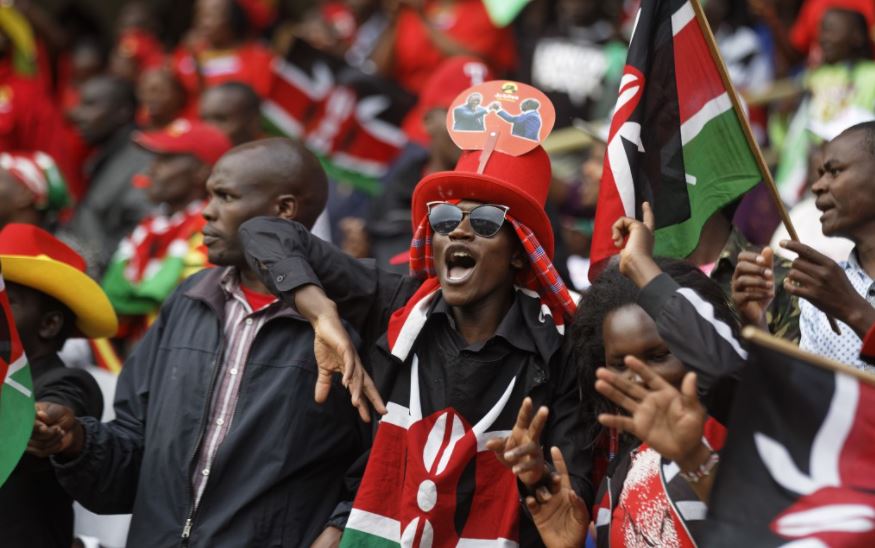By Billy Gichohi
In the recent past, a troubling trend has taken root in Kenya’s public discourse – the casual vilification of the state and its institutions. While holding leaders to account is a hallmark of democracy, the growing culture of reflexive cynicism, often disguised as “woke” criticism, threatens to erode the very fabric of Kenyan nationhood.
At the heart of this crisis of utter disregard of patriotism as the bedrock of strong nationhood lies a dangerous oversight informed by a dismal symptom of dangerous naivety. In a country still grappling with ethnic divisions, economic inequality, and external pressures, fostering a shared sense of national pride is way more than idealistic. In fact, it is a strategic imperative.
Let us revisit Kenya’s historical journey for context. Kenya’s struggle for independence was fuelled by a unifying patriotism that transcended ethnic loyalties. Founding fathers led by Mzee Jomo Kenyatta rallied diverse communities under the banner of Uhuru (freedom). Today, however, sections of society, particularly urban youth and elites, increasingly equate patriotism with sycophancy. Social media amplifies this view, often reducing complex governance challenges to memes mocking leaders or institutions like Parliament, the judiciary, or the police.
Patriotism is the glue that binds citizens to a shared identity, especially in multicultural states like Kenya. It is what motivates individuals to pay taxes, serve in public office, or defend the nation during crises. Similarly, patriotism drives civic responsibility. Defeatism of those who claim, “This country is beyond repair” is terrible rhetoric that paralyses progress while discouraging citizen-led solutions to move us forward.
Critics argue that patriotism stifles dissent. This is a false binary. Constructive criticism rooted in a desire to see Kenya improve is itself an act of patriotism. The late Nobel laureate Wangari Maathai criticized environmental mismanagement not to belittle Kenya, but because she believed in its potential. Conversely, mindless state-bashing such as dismissing all politicians as “thieves” or branding the military as “useless” undermines institutions without offering a workable alternative.
Kenya’s current challenges demand unity. Yet, the fashionable contempt for patriotism risks fomenting many perils among them ethnic fragmentation. Without a strong national identity, ethnic allegiance fills the void. Kenya’s 2007–08 post-election violence that claimed 1,300 lives is enough tell-tale of how ethnic suspicion can tear a nation apart.
Today, politicians still weaponise tribalism at the risk of scuttling Kenya’s wobbly nationhood. Patriotism, when carefully cultivated acts as a bulwark against ethnic divisions and weak nationhood. A 2023 study by the National Cohesion and Integration Commission (NCIC) found that 67% of Kenyans prioritise ethnic identity over national identity when under stress. That is an indictment that we as a people must resolve to overcome. As Kenyans, it is important to remember that global powers and corporations prey on nations lacking collective self-worth thus denying citizens the dividends of their resources. To keep such threats as bay, patriotism comes in handy for it fosters the assertiveness needed to demand fair treatment.
Countries like Rwanda and Singapore offer good examples of how patriotism can catalyse transformation. Rwanda’s post-genocide emphasis on Ndi Umunyarwanda (“I am Rwandan”) rebuilt trust among communities. Singapore’s pledge of allegiance in schools and mandatory national service instils pride in a nation once dismissed as a “swamp.” Closer home, Tanzania’s founding President Julius Nyerere used the Ujamaa (familyhood) sensibility to unite 120 ethnic groups.
Kenya, too, has flashes of such unity that we can build on and create a stronger sense of nationhood. The 2010 constitutional referendum saw a 68% voter turnout, with citizens debating passionately but peacefully. The Kenya Defence Forces’ role in regional peacekeeping missions, from Somalia to DR Congo, showcases a patriotism that elevates Kenya’s global stature.
To reclaim patriotism is to anchor criticism in love for the country. For instance, instead of declaring “All police are corrupt,” patriots demand reforms to make the service trustworthy. Instead of mocking national symbols like the flag, they honour what those symbols could represent.
Schools and media have their role cut out in kindling a nationalistic spirit across Kenya. Initiatives like the “My Kenya, My Pride” campaign by the Ministry of Education, which highlights historical heroes, offer a blueprint worth building a movement for a stronger sense of nationalism.
They say a rising tide lifts all boats. Conversely, leaders who stoke division or loot public funds betray the patriotism they claim to embody. Time to reignite the fire that once united Kenyans against colonialism and dictatorship is now. Kenya not as a failed project, but as a work in progress – our work!
The author, Billy Gichohi is an aspiring politician currently working for a Nairobi-based international organisation that supports small-scale farmers undertaking transformative farming projects in East Africa.



